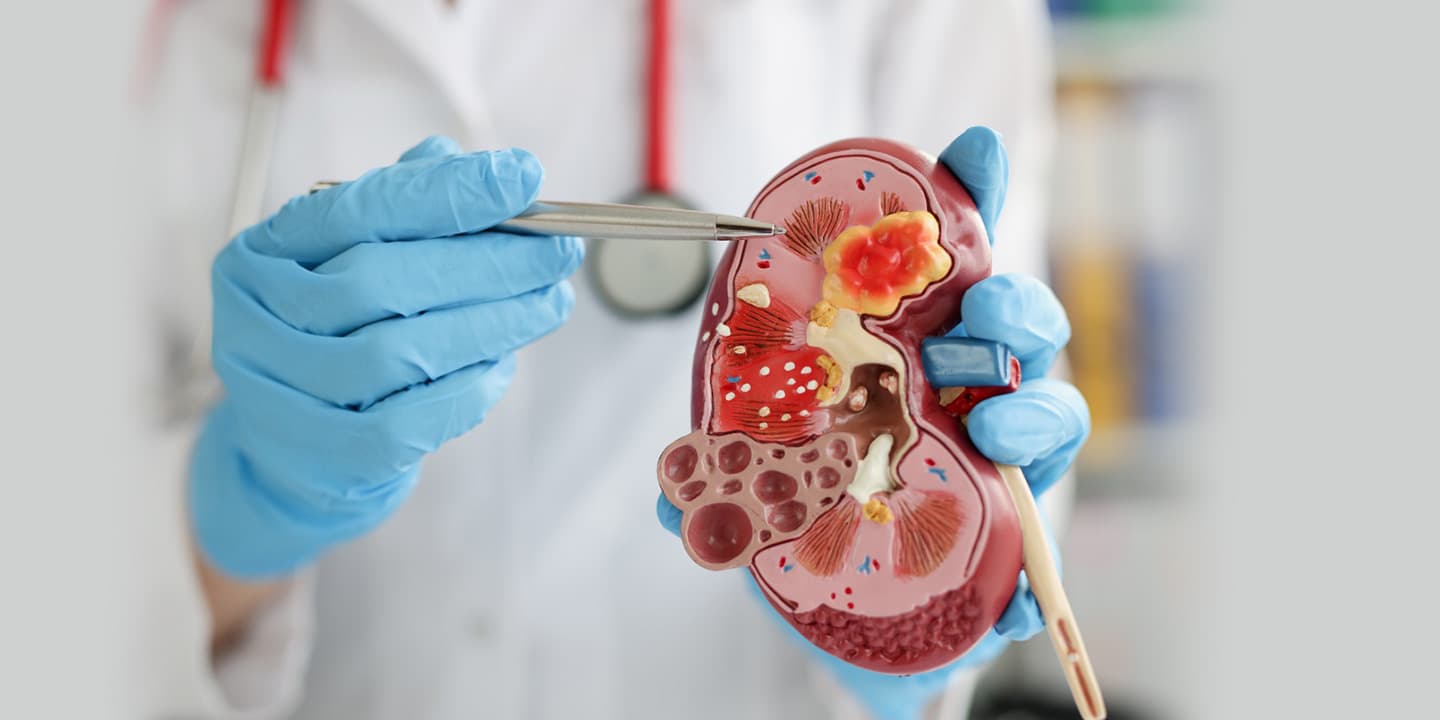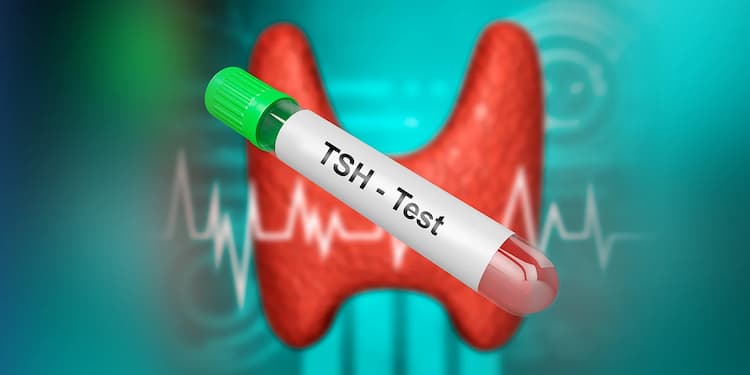Kidney Function, Damage and Abnormalities Tests

Medically Reviewed By
Dr. Ragiinii Sharma
Written By Prekshi Garg
on Jul 12, 2022
Last Edit Made By Prekshi Garg
on Mar 17, 2024

The bean-shaped organs, also referred to as kidneys, play a crucial role in eliminating minerals and water from the body. Kidney tests help determine the efficient functioning, damage, or abnormalities of the kidneys. The kidney tests primarily involve basic blood tests, urinalysis, or both. Advanced kidney analysis, such as imaging tests also helps detect the structural anomalies and conditions of the kidney.
What are kidney function tests?
KFT Test is general urine or blood test that helps analyze how well the kidneys function. These tests measure the minerals and proteins present in the urine that help detect the kidney condition. The tests also help determine GFR or glomerular filtration rate GFR assesses the efficient working of the kidneys in clearing waste from the system.
Functioning of the kidneys
The urinary system houses two bean-shaped kidneys situated on either side of the spine. Apart from expelling the body’s waste through urine, these vital organs help in the following ways.
- Produces hormones that help maintain blood pressure,
- Produces red blood cells or RBCs that help carry oxygen in the blood,
- Creates Vitamin D, essential for bone and muscle health.
Why is a kidney function test done?
As aforesaid, kidney function tests define how well the kidneys function. Health conditions such as high blood pressure and diabetes affect kidney functioning. And thus, the risk of having kidney anomalies in people with these conditions is generally high.
Other conditions that require a kidney function test include:
- Hematuria- the presence of blood in the urine,
- Dysuria- pain during urination,
- Frequent urination,
- Difficulty urinating,
- Problems while starting to urinate.
If you have signs of kidney disease, you are likely to take the kidney function test. Some of the major symptoms of kidney disease include:
- Nausea,
- Vomiting,
- Loss of appetite,
- Weakness,
- Disturbed sleep,
- Urinating problems,
- Muscle cramps,
- Feet and ankle swelling,
- Skin gets dry and itchy,
- High blood pressure,
- Breathing difficulties,
- Pain in the chest.
Your doctor may order a regular kidney blood tests if you conditions causing a high risk of kidney diseases, such as
- High blood pressure,
- Diabetes,
- Cardiovascular conditions,
- Presence of kidney stone,
- Family history of chronic kidney diseases.
Specific types of Kidney function analysis
Kidney function tests include blood tests for kidney function, urine analysis, and imaging tests. Here is a breakdown of the different kidney tests.
| Type of tests | Test description |
| BLOOD TEST | |
| Serum Creatinine | The wearing and tearing of muscle releases a protein called creatinine. The blood creatinine levels vary between different age groups and body proportions. Creatinine level higher than 1.2 in women and 1.4 in men indicates kidney issues. The higher the creatinine level in the blood, the greater the kidney damage. |
| Glomerular Filtration Rate (GFR) | This test measures how accurately the kidneys expel the waste and fluid from the blood. The reference range GFR varies depending on age and gender. The normal GFR range is 90. GFR value below 60 depicts kidney problems and below 15 indicates a high risk of kidney failure. |
| Blood Urea Nitrogen (BUN) | The proteins in the body break down into urea nitrogen and circulate in the blood. The normal BUN values are anywhere between 7 to 20. Decreased or damaged kidneys show high BUN levels. |
| IMAGING TESTS | |
| Ultrasound | Ultrasound uses sound waves to create images of the kidneys. This imaging test reveals the abnormalities, obstructions, stones, and tumours of the kidneys. |
| Computed Tomography (CT) Scan | CT Scan provides specialised X-rays of the kidneys that show structural abnormalities and obstructions if any. |
| Kidney biopsy | Done under a microscope where a piece of kidney tissue is extracted for analysis. Kidney biopsy helps,
|
| URINE TESTS | |
| Urinalysis | It either can be done under a microscope or as a dipstick test. In the Dipstick test, the trip dipped in urine changes colour in cases of excess proteins, blood, infection, or sugar. The urinalysis helps detect diabetes, chronic kidney conditions, kidney stones, and bladder infections. |
| Urine Protein | Excess protein in urine indicates proteinuria |
| Microalbuminuria | It is a highly sensitive test that detects tiny protein molecules or albumin in the urine. Higher albumin indicates that kidneys are not functioning effectively. People with a high risk of kidney disorders must take this test. |
| Albumin to Creatinine Ratio (ACR) | ACR is the value obtained by dividing the albumin level by the creatinine level in the urine. Normal ACR levels should be below 30. ACR value of 30-300 means increased albumin. And if above 300, you have severely elevated albuminuria. |
| Creatinine Clearance | This is calculated by comparing creatinine in a 24-hour sample of urine to that of creatinine in the blood. This test indicates the amount of waste filtered by the kidneys in a minute. |
Note: The normal values may differ between clinics.
How is the kidney blood test performed?
Kidney blood tests involve the withdrawal of blood samples from the veins to check various parameters of the kidney function test. In case of a 24-hour urine test, the provider will give a container to collect the urine sample that can be collected at home. You will need to collect urine samples throughout the day or for a 24-hour duration. The blood and urine samples collected are further processed and checked in the laboratory.
What to expect after the test?
Kidney lab tests are simple and involve no side effects. Rarely do people observe bruising, fatigue, or faintness after the test. These symptoms are short-lived and do not cause extended complications. However, you may call your physician if these symptoms do not go away.
And regarding the results, you are likely to receive the results the same day or a day after sample collection.
Kidney Function test price
Kidney function tests are designed to map and investigate how well the kidneys are working by checking various blood parameters and protein and mineral content in the urine. Doctors who want to rule out kidney problems in a person may order these simple tests. The kidney function test cost differs between cities and labs.
The kidney blood test price starts from Rs. 650 onwards.
Frequently Asked Questions
What blood tests show kidney function?
The blood tests for kidney function checks blood parameters like serum creatinine, Glomerular Filtration Rate (GFR), and Blood Urea Nitrogen (BUN).
Can a blood test check for kidney problems?
The primary test for kidney disease is a kidney blood test. This test measures the creatinine levels generated as a result of muscle wearing. The blood test results, body size, age, gender, and ethnicity are considered while understanding the amount of waste to be filtered by the kidneys per minute.
What are the first signs of kidney problems?
The early signs of chronic kidney disease include:
- Unintended loss of weight,
- Swelling of ankles, feet, or hands,
- Shortness of breath,
- Fatigue,
- Blood in the urine,
- Vomiting,
- Nausea.
Conclusion
Kidney function tests help analyse how effectively the kidneys are functioning. Kidneys are vital organs that assist in waste removal. Diabetes, high blood pressure, heart disorders, and infections can affect kidney functioning. The kidney function majorly includes blood and urine tests along with kidney imaging and biopsy.
The labs generally give the blood and urine test reports on the same day. Get connected with Redcliffe labs to get a kidney function analysis with a detailed, clear report, and home sample collection services.
![Gluten Allergy Test - Price, Purpose, & Result [2024]](/myhealth/_next/image/?url=https%3A%2F%2Fmyhealth-redcliffelabs.redcliffelabs.com%2Fmedia%2Fblogcard-images%2FNone%2Fe94dfe46-8720-40de-854a-deedae3143d1.webp&w=750&q=75)


